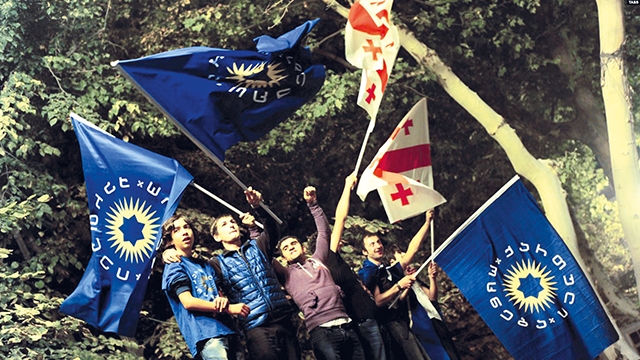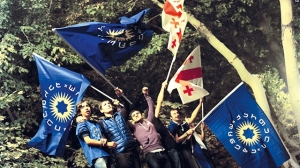Internal Georgia: The Year Ahead of the 2020 Elections
As Georgia braces for crucial parliamentary elections in October 2020, the period leading up to it will be characterized by internal struggles between the ruling party and a number of major opposition forces. This will also be a period when many other small political parties will be created. The major challenge for the ruling party will be to navigate the diverse political landscape slowly merging ahead of the 2020 elections.
One of the key motivators for the opposition to coalesce will likely be the inability of many opposition parties to cross the 3% barrier set for the 2020 elections. Characterized by deep ideological divisions since gaining independence in 1991, Georgian political parties have rarely managed to create a unified front against a ruling party. When it happened in 2003 and 2012, the then governments were either forcefully ejected or changed through elections.
However, when comparing the current situation with 2003 and 2012, we should bear in mind that the need for changes across the country is not as acute as in those two cases. Moreover, the opposition forces nowadays lack a clear leader (as in 2003 and 2012).
The period leading to the 2020 elections will be traditionally absorbed by internal developments in the country: the need to implement various economic, education and social reforms. However, this time, foreign policy issues too will feature high on the parties' agenda. Put into this context, the issue of the still-breathing Anaklia project will be repeatedly brought up.
Despite the Crises, the Ruling Party will Survive
Though many members of the GDDG left the party and there are calls to hold early elections, it is unlikely we are going to see a collapse of the government. The ruling party still enjoys popularity among various elite groups such as the business community, education sphere and, most importantly, security services.
Moreover, the growing number of Georgian middle class is also disinterested in having an abrupt end to the current government. A fair amount of disenchantment exists among the populace with the opposition parties, dominated by the UNM and European Georgia parties. Both represent former Georgian President Mikheil Saakashvili's rule, which is often associated with swift and positive reforms, but was also marred by political repression of opponents and widespread human rights violations. This will limit the support the opposition parties expect to garner before the 2020 elections.
There is also a counter opinion, shared by many among the general population, that the shift to a proportional system in 2020 could have brought a more chaotic parliament with numerous parties and constant squabbles and protests in central Tbilisi.
Longer-term View
Thus, as there are rising merging tendencies among the opposition parties,
Georgian Dream will find it ever harder to keep its erstwhile popularity across the country; while there are signs of disenchantment with them in the West with many institutions and governments (including the US and EU) expressing criticism regarding the failure to shift to the promised proportional electoral system.
However, this does not mean that the ruling party will collapse. Despite the problems it will face in the coming months, there are still many indicators showing that the GD will remain a significant competitor in the 2020 parliamentary elections.
By Emil Avdaliani
Image source: rferl.org/TASS












